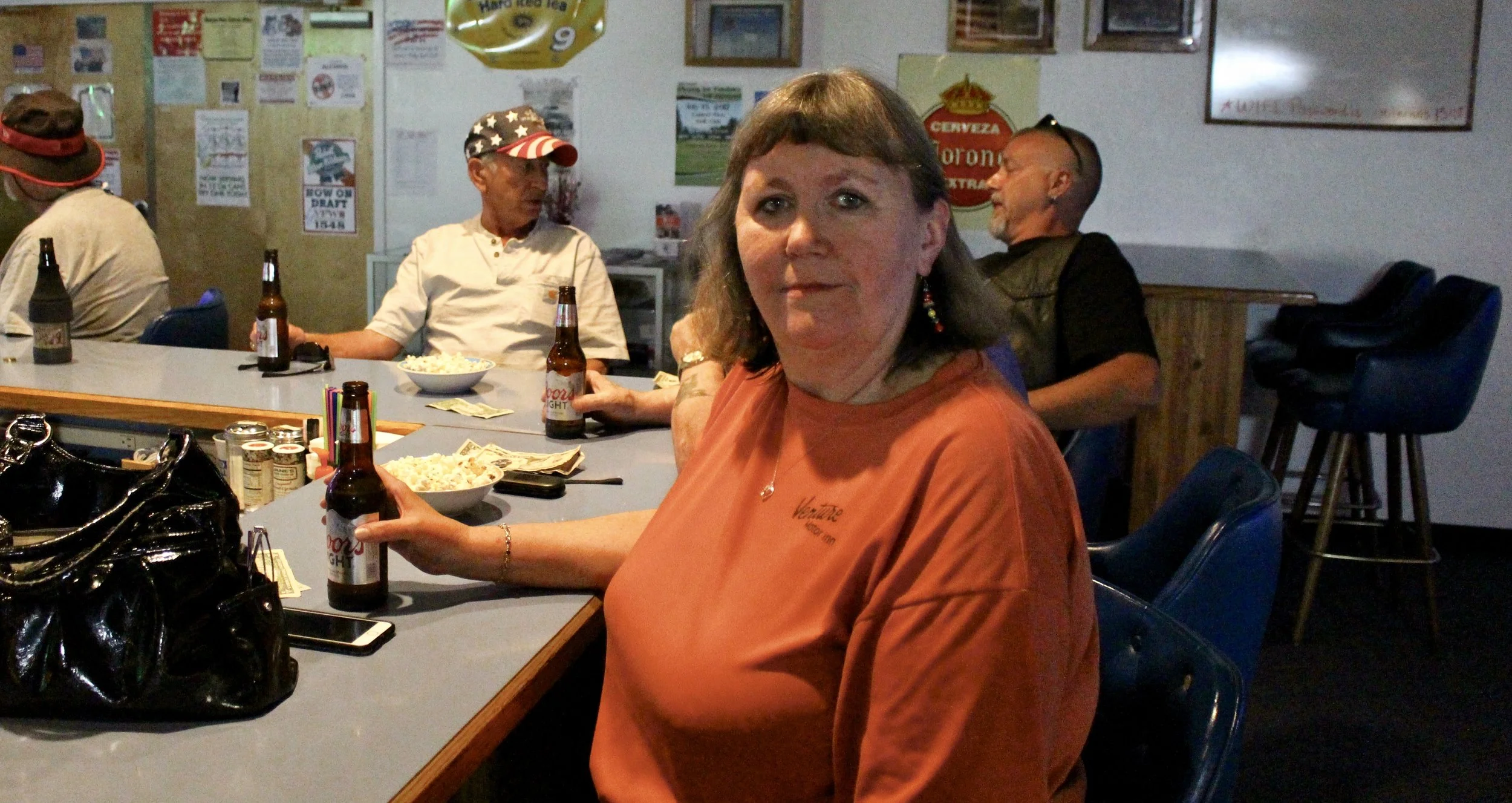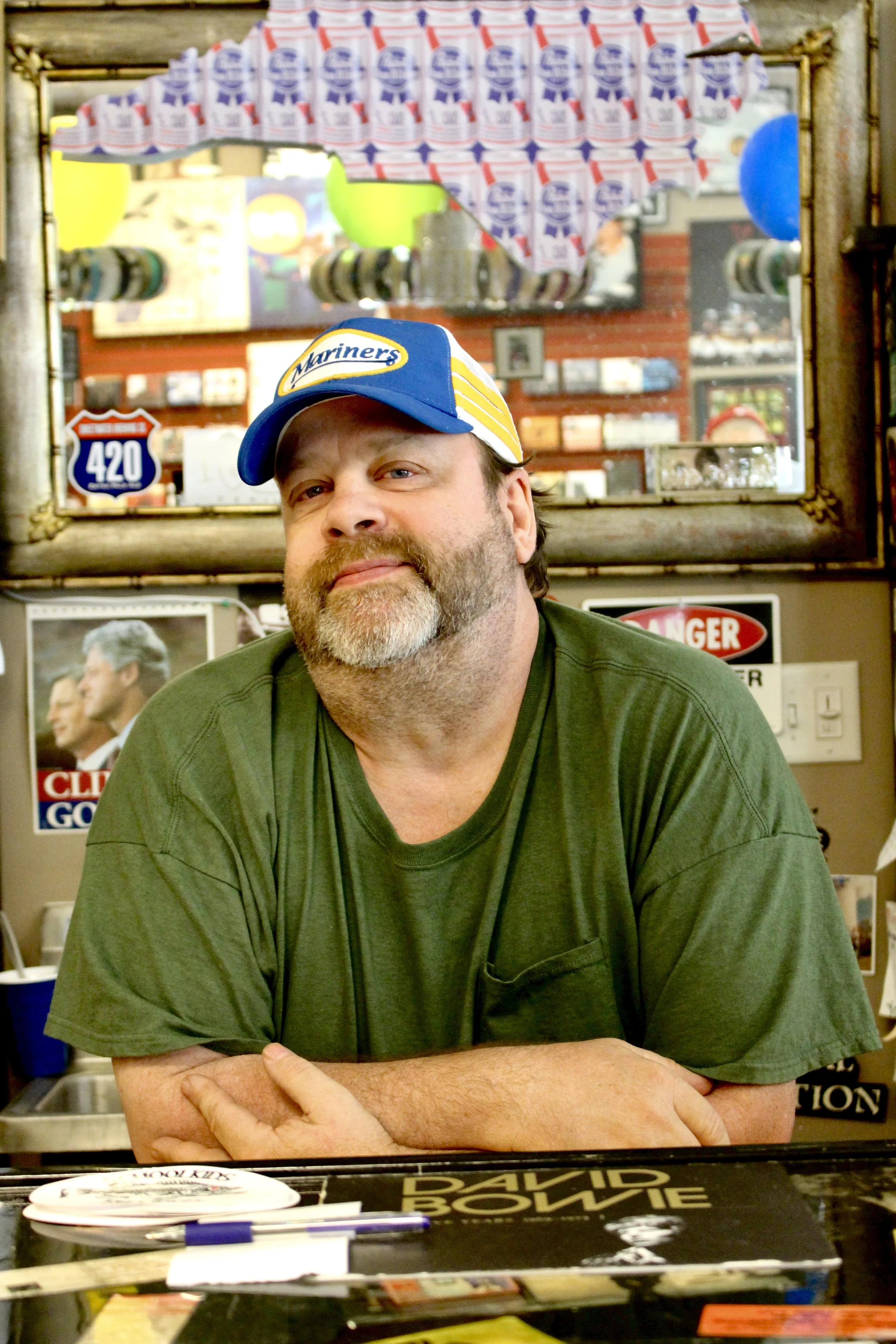The Snowboarder
Two mountain ridges ripple up out of flatlands in western Montana. The road leading westward into them sees prairies blend slowly into bushes. Soon roads are flanked by tall dead trees that stick up like toothpicks in an ashtray - some properly aligned but many tipping, leaning at abnormal angles, acting as spikes along natural ramparts. Winding through the mountain passes, the landscape comes alive with cool jewel tones and the forests would be impassably dense if not for the freshly paved road. It breaks to reveal a flatland valley town, a pristine variant of what the natural walls so energetically keep out. Whitefish sits as the pearl within this shell. The walls of mountain and forest scabbard seem to protect the town from the hardships weathering towns on the outside. This is where Ryan Brown was pulled after an early life in the suburbs of Washington.
“I grew up in Edmonds Washington. Dad was an electrical engineer, Mom was a stay at home piano teacher. It was suburb living. I loved where I grew up, love my friends and family there but I’m glad I’m not there anymore. I just found better things, simpler things. I was a snowboard bum, went and spent a winter here and there until I landed in Whitefish. Went to Hawaii for a year after that and felt like I had to come back here. So I did. And I stayed for 17 years.
I’m glad I left. I don’t like the area I grew up in anymore. It’s just kinda grown out of control. It’s always been a busy place but now it’s lost it’s soul a bit. It’s just one big megalopolis of Gold’s Gym, Home Depot, just chains and no real township. The growth has been incredible to watch. ”
The cohesion of the Whitefish community is one of the things that seems to give it so much appeal, but in Ryan's time here it hasn't been immune from the changed hitting the country. It seems to have ridden the wave though, rather than be swallowed by it.
“The growth has been incredible here too. This is not the community that I moved to. But it is. When I first moved here it was a little sleepy mountain town. But now, I’m saying goodbye to the crepe girls today because I’m not going to see them for 2.5 months. It gets so so busy because of the tourism that I won’t be able to get into anything and I won’t really leave work at the restaurant here.
The people that came here are still here. The town has stayed the same vibe. It’s spit out tons of people that came in and tried to change it, saying it needed this or that, needed a new shop or a Jimmy Johns or whatever. If people don’t jive with the town they end up leaving - young and old, rich or poor - people that don’t fit just fall out of the place. Those that get it, stay and try to hang on to every bit they can.
In the past 5-7 years though, the town has exploded in size. We have 7000 living here yearround then there’s the tourists, and a bunch of people with second homes here. We have a few very wealthy people that have moved in and become sort of patrons of the community. We’ve gotten some really great public spaces built from people’s generosity, people who get the vibe of the place. One of our local gajillionaires donated money to build a skatepark, to stock the food bank, to build out more bike trails. It’s super cool.”
It is as though the rules of small town America have been flipped on their head here. Rather than small shops closing down, people fleeing, economies slowing, the current has reversed. Here the little shops are bolstered and big competitors eschewed; People are clamoring to move in; the economy is booming and the money being made is often plowed back into the neighborhood commons.
“The biggest driver of the economy here is tourism. Tourism, period. It was a railroad community before tourism took off. It used to be called Stumptown because they cut down all the trees in town to make a railroad. That was back in the old cowboy days. But now that tourism came, that’s the lifeblood of the economy here.”
The reliance on tourism for the town's fortunes has mixed lessons. On the one hand, it shows that economic bloom can still happen in a town with little more than good people and pretty landscape. At the same time, it echoes the dangerous and economically exclusionary narrative out of Silicon Valley and other bleeding edge elements of the American machine. The push to "disrupt" industries, to hack for efficiencies, to find a quirky new "it product" has major payoff for the few winners of the system and it rightly glorifies the success of that new winner. But at the same time it eschews responsibility or even consciousness of the livelihoods that are disrupted and left behind. So too with Whitefish, the small town is like many other small towns in the area apart from its particular draw for the circumstances of the era: its like-worthy shareability, its appeal to a new class of jetsetting social elites looking for a getaway, its bohemian culture, carefully crafted by transplants. It's a success story no doubt. It's also a success story that has little transferrable lessons for a broad turnaround. Successes like this rely on limited resources: tourism, affluence, attention. The residents of Whitefish seem to know what they've got and are happy to use the resources of this prosperity to their benefit.
“Everybody here takes some time to play. I think of my hardest working friends in the construction business or landscape business. They own their own business and make a lot of money from the rich people that have come into town. But they spend their off time going dirt biking or they’ll go fishing or skiing. They work hard but they recreate hard. All of us do something like that. Work really hard during the tourism season and then take off traveling or recreating around the mountains here. My friends are all in it for something like that, preserve that way of life a little bit. ”
Whitefish is a success story in a sea of stories of small town stuggles. While it doesn't lend itself as a roadmap to righting the ship around the country, it serves as a shining example of how to handle an economic boom. The residents of town refuse to compromise their or the town's character as growth has settled in. They corral growth into public spaces and turn their economic boom toward recreation and the lifestyle they came for in the first place. There is a clear north star in this type of town. It does not court growth. It uses it to be a better version of itself.












